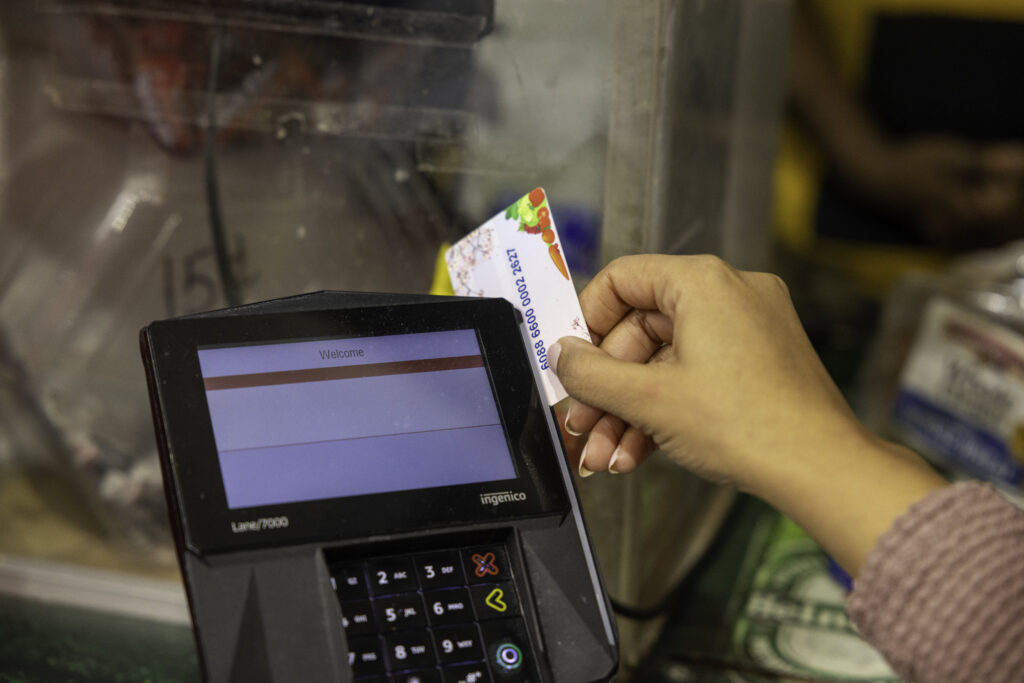A shopper who receives SNAP benefits slides an EBT card at a checkout counter in a Washington, D.C., grocery store in December 2024. (Photo by U.S. Department of Agriculture)
WASHINGTON — As the federal government shutdown extends to day 17, and with congressional leaders nowhere near negotiating, state officials are beginning to raise concerns of potential cuts to nutrition assistance benefits that feed millions if the government isn’t reopened.
Minnesota has already halted new enrollments in the Supplemental Nutrition Assistance Program, or SNAP. And officials in Kansas, New Hampshire and New Mexico have warned their residents could miss their food assistance payments for November.
More than 42 million Americans rely on the program, which the U.S. Department of Agriculture administers. The federal government funds nearly all the program benefits, with states administering the program.
Agriculture Secretary Brooke Rollins warned Thursday that SNAP will run out of funds in two weeks if Congress fails to strike a deal and end the government shutdown.
“You’re talking about millions and millions of vulnerable families of hungry families that are not going to have access to these programs because of this shutdown,” she said outside the White House Thursday.
USDA could not be reached for comment Friday.
USDA has directed regional SNAP directors to stop working on benefits for November, according to an Oct. 10 letter obtained by Politico, written by the program’s acting associate administrator, Ronald Ward.
“Considering the operational issues and constraints that exist in automated systems, and in the interest of preserving maximum flexibility, we are forced to direct States to hold their November issuance files and delay transmission to State EBT vendors until further notice,” Ward wrote. “This includes on-going SNAP benefits and daily files.”
USDA has already shuffled more than $300 million in tariff revenue into the agency’s Special Supplemental Nutrition Program for Women, Infants, and Children, or WIC, through the rest of the month.
The shutdown started Oct. 1 after Congress failed to find a bipartisan path forward on a stopgap spending bill.
Senate Democrats have pushed for negotiations to extend the enhanced tax credits that are set to expire at the end of the year for people who buy their health insurance from the Affordable Care Act marketplace.
Republicans have insisted on passing the House’s version of the stopgap funding bill that does not address insurance premiums.


